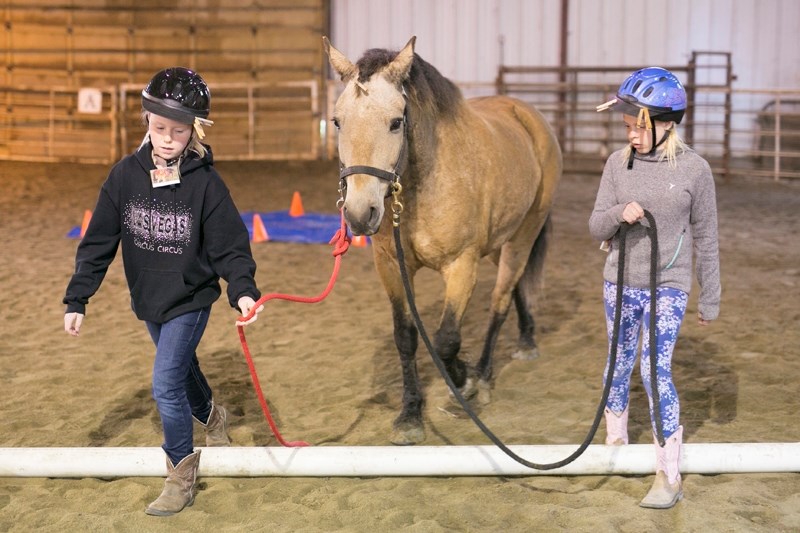Young students are taking part in a six-week learning opportunity program at the James River Horse Palace north of Sundre.
Students have been visiting the facility on Thursdays this spring to participate in the equine assisted learning (EAL) program.
The kids in the program are Grade 3 to Grade 7 students from Sundre's River Valley School.
A total of 18 students are taking part in the current program.
EAL is an emerging field in which horses are used as an instrument for personal growth and learning, says Christine Schauer, owner of Triple C Equine Experience.
In the program, the students do not ride the horses. Instead they interact with the animals, walking them through fixed patterns on the ground and visiting with the animals.
Activities involving the horses require the students to apply specific skills, including non-verbal communication, assertiveness, creative thinking and problem solving, leadership, responsibility, teamwork, confidence and attitude, said Schauer.
"I set up a series of obstacles for them to navigate," she said. "There will be minimal rules for them to look at and they sort of formulate a plan and then they solve it using the horse as part of their team. They have to navigate it in such a way that the horse is able to do it as well. It's a lot of teamwork and problem solving.
"They are dealing with an animal that doesn't speak so they are learning about body language and appropriate assertiveness."
Kids in the program show real progress from week to week, she said.
"I see confidence levels go up with these students," she said. "They are learning to communicate in different ways, other than just with language. There are lots of personal skills that are developed."
Lindsay Hill, family school wellness worker at River Valley, says kids in the program receive numerous benefits from participation.
"Basically it enhances the skills they already have, and for some it actually introduces new skills in terms of their levels of competence and confidence," said Hill.
"The life skills are transferable. They do these team-building activities and they are working with partners in conjunction with the horse. They are learning communication skills, verbal and non-verbal."
Asked how students are selected to be offered a chance to take part in the program, she said, "The vast majority are kids that are part of the school's family wellness program already, and then others have been selected through conversations with teachers as someone who could use a different opportunity and this gives them that."
"Activities involving the horses require the students to apply specific skills, including non-verbal communication, assertiveness, creative thinking and problem solving, leadership, responsibility, teamwork, confidence and attitude."



